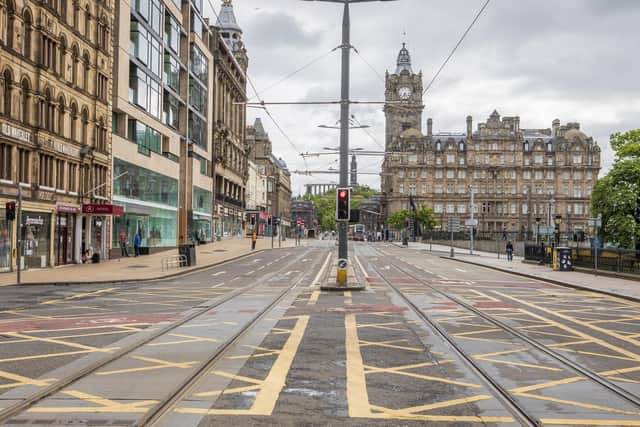Covid Scotland: lifting of restrictions postponed, but we have come a long way since March 2020
and live on Freeview channel 276
Let us know what you think and join the conversation at the bottom of this article.
But then along came the so-called Kent variant, now renamed Alpha, and that all changed. The lifting of restrictions was reversed, many festive family get-togethers had to be cancelled and soon the UK was in another lockdown.
After another half-year of ups and downs with the virus, Boris Johnson had planned to lift all legal restrictions south of the border on June 21, but once again things are not going to happen quite as planned.


Advertisement
Hide AdAdvertisement
Hide AdAnd Scotland’s scheduled move a week later to Level Zero, the closest to normal in the country’s roadmap out of lockdown, is all but certain to be delayed too.
It will be a serious blow to many who had been counting on finally escaping the restrictions which have caused so much disruption and distress over these past 15 months.
Level Zero would allow most remaining businesses to reopen, weddings and funerals to take place with up to 200 guests and more people to meet inside and outside.
But the reason for the delay is, of course, the Delta variant, first identified in India which is 60 per cent more infectious than the Alpha variant and twice as likely to lead to hospitalisation. Confronted with a potential third wave of the virus, it makes sense not to abandon all safeguards.
Advertisement
Hide AdAdvertisement
Hide AdAs well as causing 128,000 deaths across the UK, the pandemic has had a devastating impact on so many – people have lost jobs and been left struggling financially; others have had to close businesses they spent years building up; young people have missed out on education and important friendships; much-needed operations and medical treatments have been postponed; family relationships have been put under strain; and many people have had to cope with loneliness and mental health issues.
Communities have rallied round and made huge efforts to help, providing thousands with regular meals and all sorts of practical assistance, but the pandemic will nevertheless have a lasting impact on many people.
However, we should also remember how far we have come. When the first lockdown was announced on March 23, 2020, no-one knew what lay ahead. Normally-busy streets suddenly emptied, familiar buildings were locked up. Coronavirus was filling our hospitals and experts warned a vaccine would take years to develop.
But now the miracle of modern science has delivered us not one but several vaccines able to take on the virus and save lives. Most shops and businesses are trading again, the streets are busy and people are able to mix more.
Advertisement
Hide AdAdvertisement
Hide AdIt may be mask-wearing and physical distancing will be part of our lives for a while yet, but without the dedication of NHS staff caring for those with Covid and the scientists who produced the vaccines which are now protecting us, everything could have been so much worse – and in many poorer countries it is much worse.
The one billion vaccine doses the G7 leaders have pledged to donate is to be welcomed – but the World Health Organisations says 11 billion are needed. The rich countries progressing well with their own vaccine roll-outs should be doing more to share that good fortune.
A message from the Editor:
Thank you for reading this article. We're more reliant on your support than ever as the shift in consumer habits brought about by coronavirus impacts our advertisers.
If you haven't already, please consider supporting our trusted, fact-checked journalism by taking out a digital subscription.
Comment Guidelines
National World encourages reader discussion on our stories. User feedback, insights and back-and-forth exchanges add a rich layer of context to reporting. Please review our Community Guidelines before commenting.
